smartcity
Latest

Google’s smart city dream is turning into a privacy nightmare
Sidewalk Labs, an Alphabet division focused on smart cities, is caught in a battle over information privacy. The team has lost its lead expert and consultant, Ann Cavoukian, over a proposed data trust that would approve and manage the collection of information inside Quayside, a conceptual smart neighborhood in Toronto. Cavoukian, the former information and privacy commissioner for Ontario, disagrees with the current plan because it would give the trust power to approve data collection that isn't anonymized or "de-identified" at the source. "I had a really hard time with that," she told Engadget. "I just couldn't... I couldn't live with that."

Inside Google’s plan to build a smart neighborhood in Toronto
On the Sidewalk Labs website is a 200-page document explaining its vision for a smart neighborhood in Toronto. It's packed with illustrations that show a warm, idyllic community full of grassy parks, modular buildings and underground tunnels with delivery robots and internet cabling inside. The text describes "a truly complete community" that's free of cars and committed to reducing its carbon footprint. Underpinning everything is a network of sensors that can monitor noise, traffic and pollution, collecting the troves of data required to understand and improve the city's design. Flipping through the pages, it's easy to see how the company -- an offshoot of Google parent Alphabet -- was chosen to revitalize the Lake Ontario waterfront. The lengthy pitch document, however, is just a taste of what the area might become. It's a dreamy but meticulously thought-out mood board summarizing what Sidewalk Labs has been pondering for the past two years. Reading it cover to cover, you can get lost in the scale and ambition of such a project. Most companies would struggle to execute just one aspect of the plan: autonomous transit, for instance, or buildings that can be quickly and cheaply repurposed depending on the time of day or needs of the city. Sidewalk Labs, however, wants to do it all.
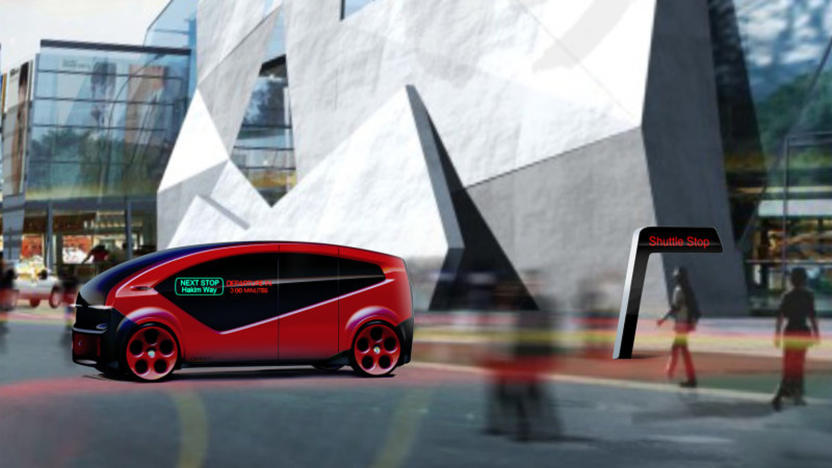
Fisker unveils self-driving shuttle built for smart cities
Believe it or not, Fisker isn't just focused on upscale electric cars. The automaker has teamed up with China's Hakim Unique Group on the Orbit, a self-driving electric shuttle tailor-made for smart cities. There aren't many details, but it's clearly taking advantage of its driverless nature: the boxy design maximizes passenger space, and there's a huge digital display that tells commuters when the shuttle departs and what its next stop will be. You wouldn't have to twiddle your thumbs wondering whether or not you'll make it on time.
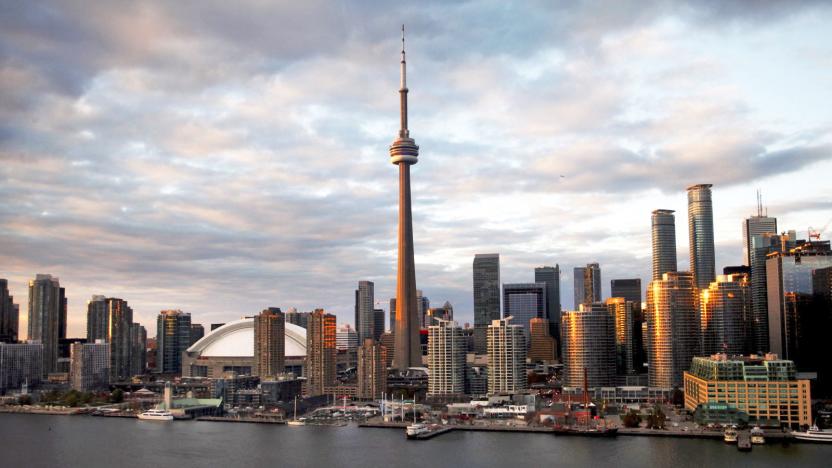
Alphabet’s Sidewalk Labs is building an 'internet city' in Toronto
The next step for Alphabet's Sidewalk Labs is making a 2,000 acre smart neighborhood in Toronto. Google Canada will relocate its headquarters to the newly created Quayside neighborhood along the Eastern Waterfront to serve as an anchor for the area, and will invest some $50 million in the first phase of planning and project testing, according to a press release. The entire project could cost as much as $1 billion, Wall Street Journal reports. TechCrunch writes that an additional $1.25 billion will come from Toronto itself. Prime minister Justin Trudeau said that the move is to make for "smarter, greener, more inclusive" cities that he hopes will expand across Toronto and eventually the globe.

Bluetooth mesh networking could connect smart devices city-wide
Bluetooth is one step closer to connecting smart devices on a large scale. The wireless standard's Special Interest Group (SIG) has announced support for mesh networking. With the new technology, manufacturers can build devices that can all talk to one another, from smart street lighting to transportation.
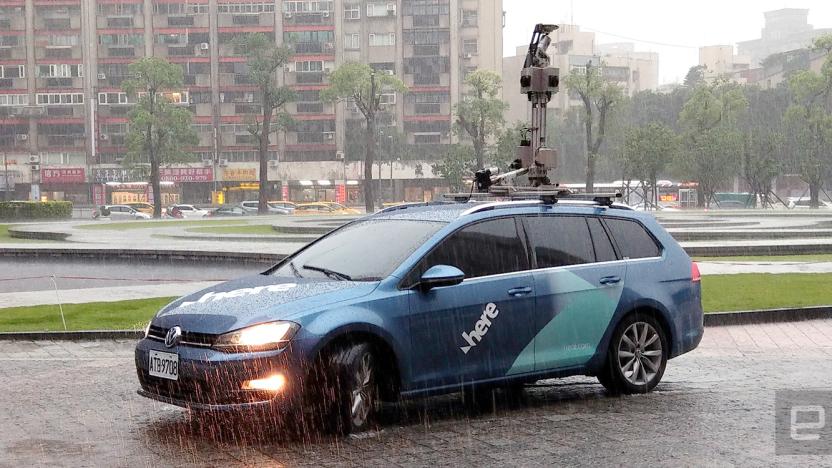
Here's updated mapping vehicle paves way for self-driving cars
It may have been a while since we last we came across a Here 3D mapping vehicle, but that's not to say the company hasn't been using its cars lately. In fact, the Here True collection vehicle is now in its third revision, and I got to hop on one -- based on a Volkswagen Golf Variant 280 TSI Highline -- during Computex. The ride features much faster D-GPS tracking that no longer requires a half-hour calibration (to reach an accuracy of under one meter), along with a Velodyne LiDAR with an accuracy of better than 2cm (within a range of up to 70 meters) and four 16.2-megapixel MARS panoramic cameras. This set of gear is almost identical to what we've seen before, so the real highlight this time is the updated backend to support high-definition mapping.
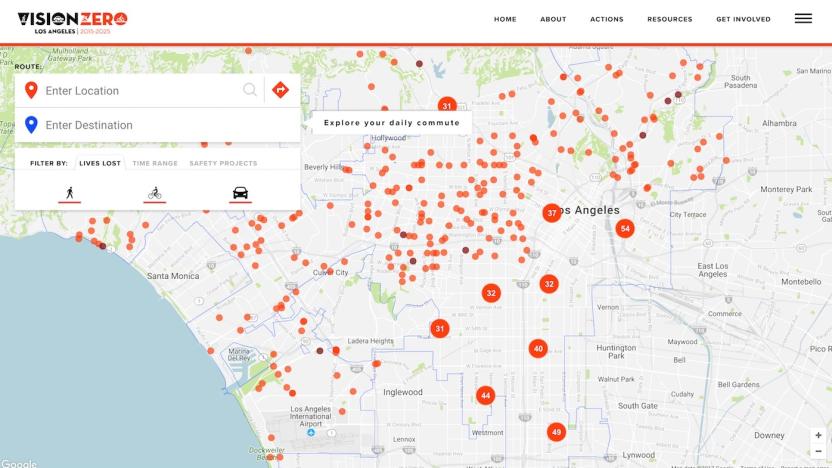
LA fights soaring pedestrian deaths with an interactive map
Open data can be an incredibly powerful tool, but it still requires context and people to actually pay attention to the information for it to be valuable. Los Angeles has discovered this the hard way. Its Vision Zero initiative aims to eliminate traffic deaths by 2025, but compared to other cities with similar programs, LA is coming up short in terms of results. After the program's first full year (2016), fatalities rose by some 43 percent according to the Los Angeles Times. There are a number of reasons for this, including more pedestrian and bicycle traffic, distracted driving and driving under the influence. To combat the rising number, the city looked to data as a means of discerning the most fatal roadways.

New York City now lets you pay for parking with your phone
New York City is making good on its promise to have smarter parking meters before 2016 is over. As of December 19th, the first ParkNYC-capable Muni-Meters are live in midtown Manhattan -- you can now pay for parking through a smartphone app (or the web, or a call) instead of fishing for cards and coins. While you'll need to load a virtual wallet, you can extend your parking if you're in danger of running out. The days of racing to the meter to top it up will soon be over, then, but so are the days of pleading with traffic officers when you're a little too late.

Singapore is striving to be the world's first 'smart city'
There are few places better positioned to become a "smart city" than Singapore. That's an easy statement to justify. Singapore is an island city-state just 30 miles across that has been governed by the same party for decades. Putting the implied democratic flaws to one side, the geography and political stability of Singapore have aided the city in preparing for the future. Two years ago, those preparations got a name: "Smart Nation," an ambitious program to push the city, its residents and its government into the digital age. Or perhaps, even further. A fiber network already stretches the length and breadth of the island, bringing high-speed internet access to every home and office; there are already three mobile devices for every two of its citizens. This is about the next step. The Smart Nation initiative looks to turn the island into a "living laboratory" -- a kind of playground for testing smart solutions to urban issues. Part of that plan is a network of sensors placed across the island that officials hope can solve the fundamental issues of Singapore's high-density living.
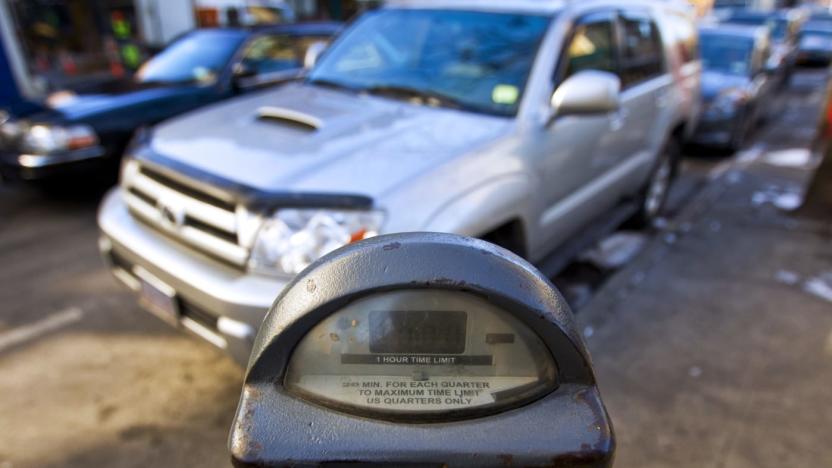
NYC's parking meters are getting a big upgrade this year
Driving in New York City is stressful enough as it is and that's before you have to try finding a parking spot only to realize that you're out of quarters. Mayor Bill de Blasio has a plan in place for making the latter easier, however: upgrading Gotham's 85,000 parking meters so they all accept smartphone-based payment systems by year's end. Rather than printing out a slip and putting it on your dashboard, soon you'll be able to just flash your phone at the new Muni-Meters.

FCC fines company $750,000 for blocking hotspots
The Federal Communications Commission announced on Tuesday that it is fining Smart City LLC $750,000 for blocking Wi-Fi hotspots. The company provides hotels and convention centers in Cincinnati, Columbus, Indianapolis, Orlando, and Phoenix with its own brand of wireless connectivity. Smart City typically charges users $80 for access. The FCC began investigating the company June of last year following complaints that it had been actively blocking convention-goers from using their personal Wi-Fi hotspots. Today's settlement also includes assurances from the company that it will not block hotspots in the future. [Image Credit: Bloomberg via Getty Images]

London tests traffic lights that stay green for cyclists
Cycling is one of the quickest ways to get across London, and soon adaptive traffic lights could make pedal-power even faster. Transport for London (TfL) is testing a system that detects groups of cyclists and, where possible, keeps the lights green for a little longer than usual. The problem being that during peak times -- for instance, the morning commute -- tons of cyclists take to the streets, causing congestion at major junctions.

The real-life hacking behind Watch Dogs' virtual world
It starts out simply. One day, you're scrolling through the Naval Criminal Investigative Service database, identifying a perp's body when an alert flashes red on your monitor. "INTRUSION DETECTED," it screams. You're getting hacked and there's only one solution: Call your bumbling partner over and have him join you at the keyboard. The two of you frantically bang out rapid-fire key sequences as random program windows flash onscreen. The hacker's getting further and further into the system. Your partner's never seen code like this before and his usual tricks to combat it aren't working. That's when the display goes dead and your silver fox of a boss saves the day by pulling the power plug of your workstation.

New York's next big neighborhood is its smartest
"It was always going to be tomorrow's city today. A new heart of New York City; Midtown expanding west." -- Thad Sheely, SVP operations for Related Companies Tourists come to stop and stare, and sometimes throw pennies. This isn't a long-standing tradition. There are no wishes to make here. It's just a construction site they're filling with change; "the largest development in New York City since Rockefeller Center." Its 28 acres span west from 10th Avenue to 12th Avenue and the Hudson River, and north from 30th Street to 34th Street. The site is home to the final piece of the High Line park; an extension of the number 7 subway line; five office towers and nearly 5,000 residences; 14 acres of public space; a public school; and an active rail yard, from which it gets its name. This is Hudson Yards: New York City's first truly smart neighborhood. Or, it will be when New York University's Center for Urban Science and Progress (CUSP), a partner for the development, finishes outfitting it with sensors.

SmartScreens begin rollout to NYC payphones, City24/7 and Cisco eying expansion to additional cities
Slowly but surely, payphones around New York City are losing their innocence. As planned, City24/7 has started to convert seldom-used booths into LCD-equipped information kiosks, with so-called SmartScreens broadcasting "neighborhood news, current events and entertainment listings, local deals and specials." We're told that multiple mobile apps are being made available via the 32-inch multitouch panels, though as of now, only ten installations have gone live. Over the next several months, the number of installations will increase to up to 250 participating phone booths throughout the five boroughs, and once it's reached saturation in the Big Apple, City24/7 and Cisco are planning to expand into over a dozen other foreign and domestic cities. The SmartScreens are designed to use real-time, location-based services, tied in to the network throughout the city, and moreover, each booth is equipped with gratis WiFi, NFC and Bluetooth capabilities. In other words, they're fit to live in.

North Carolina launches FCC-approved TV White Space network in Wilmington
Back in December, the FCC approved the first white space device and database for the lucky city of Wilmington, North Carolina. Last week, the program bore its first fruits, when database operator Spectrum Bridge finally launched its TV White Space (TVWS) network in Carolina, as part of Wilmington's ongoing "Smart City" initiative. With the TVWS network up and running, Wilmingtonians will have internet access in public parks, while authorities will be able to use part of Spectrum Bridge's broadband for video surveillance. Public security, in fact, is among the primary functions of the new network, which will be expanded to help manage traffic congestion and to help the city function more efficiently. Beam past the break for more, in the full press release.

Microsoft unites with former exec in building a 'smart city' in Portugal
If you want better cities, goes the theory herein, you'll have to start at their very foundations. Steve Lewis, ex-Microsoftie and current CEO of Living PlanIT, has a vision for how to make our cities smarter and more sustainable, and it starts literally at ground level, with the installation of smart sensors into buildings as they're being built. The appeal of his company's ideas has already attracted some tech luminaries as partners, Cisco being among them, and now Microsoft has also been signed up -- to provide the cloud framework required to keep all those sensors talking with its Azure platform. Paredes, a Portuguese municipality, will play host to one of the first such projects, eventually providing homes for nearly a quarter of a million people and costing a staggering €10 billion ($14.1b) to complete. To understand the synergistic benefits of having your life monitored by an omniscient Urban Operating System sentinel, skip past the break for a press release and explanatory video.









